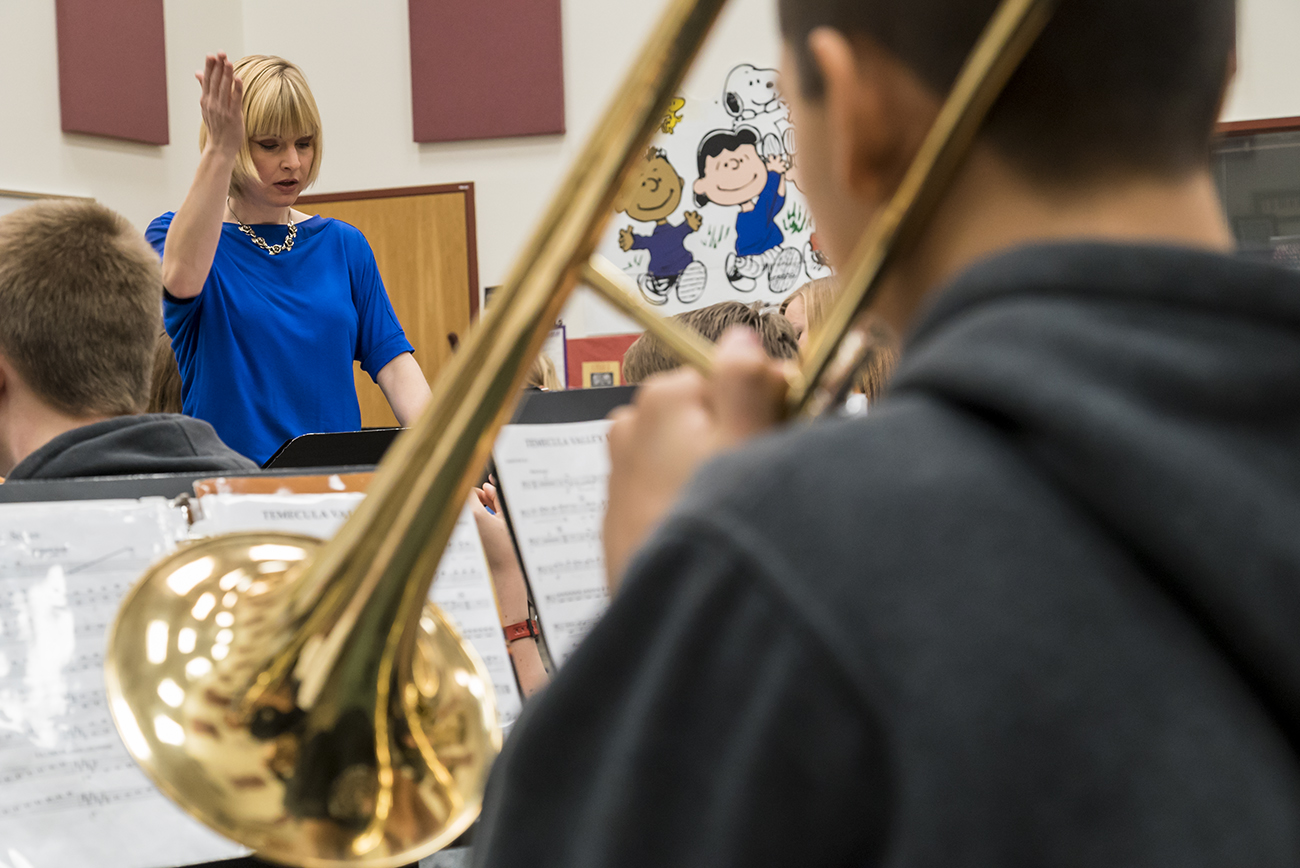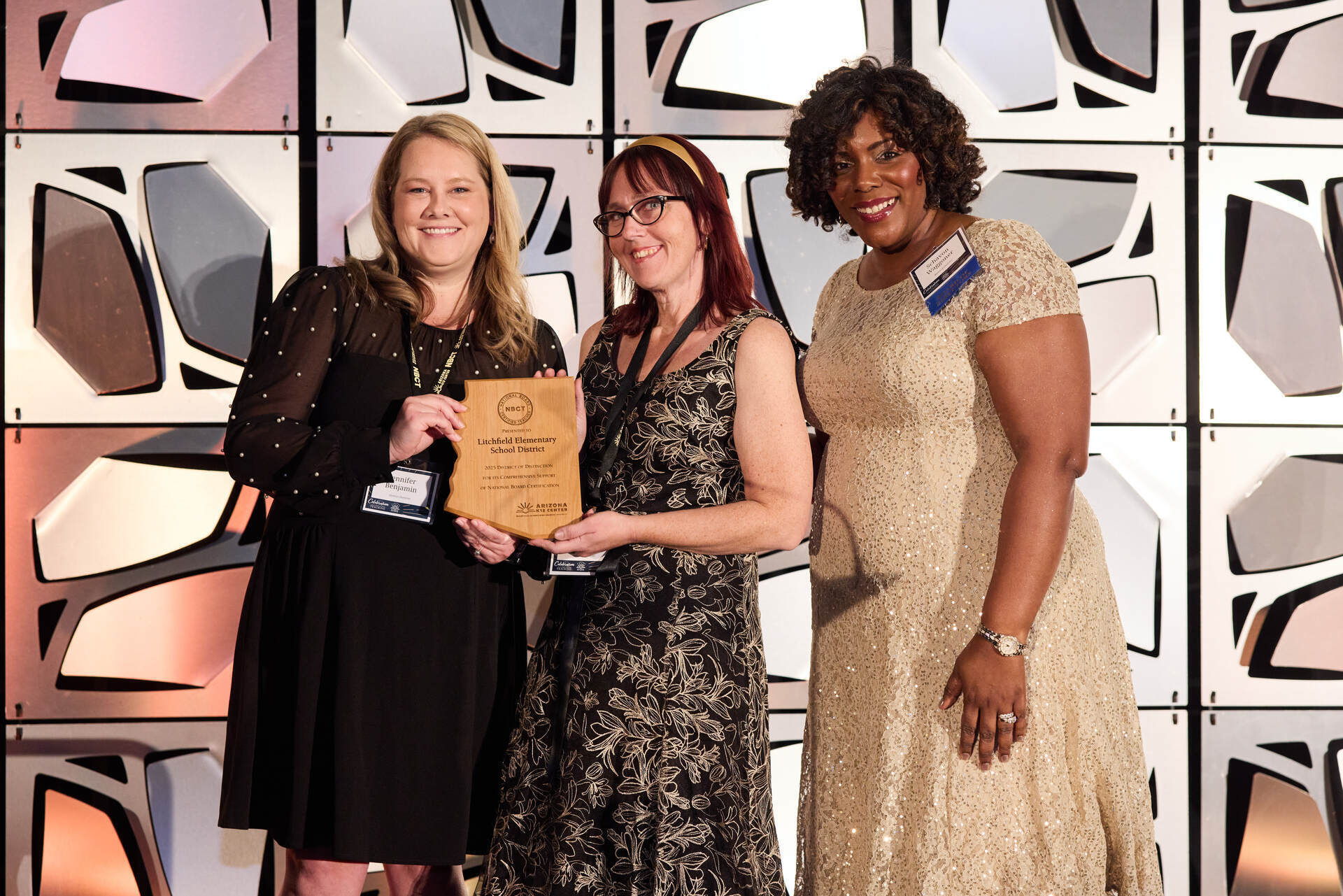July 13, 2016
Commit to Music in the Classroom
Music has a way of opening the heart and mind. Simply put, a tune can trigger brain activity in ways others can’t. So grab your cowbell, iPod, boom box, drum sticks, or whatever you’ve got … Let’s tap into the power of the senses and bring music into the classroom.
Josh Atkins is the music teacher at Griffith Elementary School in the Balsz School District. In August, the Missouri-educated professional will start his second year of teaching, and he’s not afraid to plead the case for why music education is important.
“It is unfortunate that music is often one of the first subjects to go in a budget cut. The main reason is that students need a creative outlet in their day or week that, oftentimes in the atmosphere of high-stakes testing, they don’t receive in their homeroom,” Atkins urges. “I won’t even dive into the research that shows that the arts are imperative for a child’s academic, emotional, social, and psychological development.”
With diminishing district and school budgets, we seem to be chipping away opportunities for students to engage in the arts. Therefore, teachers of all levels need to get creative so we can captivate the whole brain of our students by learning with music.
Atkins, who attended the Arizona K12 Center’s Beginning Teacher Institute in June, has plenty of ideas for music integration in the classroom. While he teaches elementary students, he’s positive teachers of all grade levels can heighten their learners’ senses by making classroom moments musical.
Atkins says there are plenty of ways for teachers to incorporate music in their rooms.
“First, just having playlists for background music and exposing the students to music they might not normally hear when they choose to listen to music is big. Even when students aren’t actively engaged in music, their brains are still processing what they hear,” he says.
“Try making playlists that combine school-appropriate versions of their favorite songs with music they might not be familiar with, including classical and cultural music. There are a ton of great covers of pop songs with a classical twist. Some of my favorite are Simply Three, which is Arizona based, Vitamin String Quartet, Boyce Avenue, and Postmodern Jukebox. All of these artists have YouTube pages, or you can make a playlist on Pandora.”
But that’s not all; he’s got more suggestions.
“Try to find songs that cover content, which is especially useful in elementary, but can be used in the upper grades too. For example, American history from 1949-1989 is covered in ‘We Didn’t Start the Fire’ by Billy Joel,” he says.
He suggests having upper-level English students analyze or close read song lyrics. Younger students can use adjectives to describe the song.
“These are great for kids because it is exposure! The more experiences our students experience the better off they are for it,” he says. “For almost any event I can think of when we want to improve it we add music. Why should the classroom be any different?”
If you’re still not convinced, Atkins furthers his case.
“Music has been a part of the human experience longer than any other human invention. Students need to understand that music is a part of them,” he explains. “Music teaches our students to appreciate beauty, form opinions, identify with others, interact with others, teamwork, perseverance, and a long list of other character traits.”
So what tactic will you choose? Maybe you will start the year off by playing a certain song to queue the end of one task and the start of another. Or, perhaps you’d like a little more exposure to the idea and you’ll register to join us for Fun and Engaging Best Practices for Teaching and Learning with Music and Movement on December 3. Whatever you choose, we encourage you to awaken student senses with music integration during the 2016–2017 school year.











